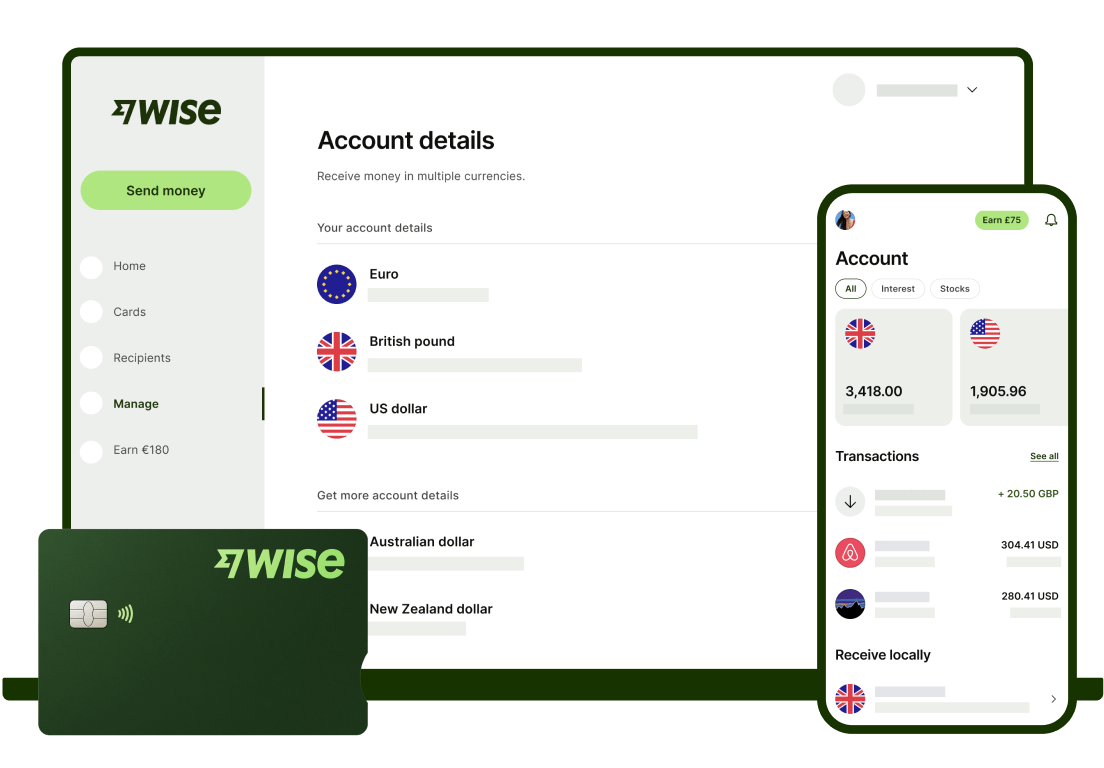Does Apple Pay work in China? How to add Alipay to Apple Wallet in China?
A popular digital payment methods in China, Alipay can be an essential for any expats in China. You might need to know how to add Alipay to Apple Pay.

China has an open-door policy for foreigners to work and start a business in China. Foreigners workers in China should obtain work permits and work-type residence permits in accordance with the regulations. Foreign-investment enterprises should submit the required paperwork and apply for company registration with the appropriate local authorities. They also need to have a comprehensive understanding of China’s tax rates, including China’s individual income tax rate and business tax rate in order to avoid working in violation of the law.
It's common for expats to send their earnings out of China. But it can take time and incur unnecessary costs to make an international transfer with a traditional physical bank. Wise, founded in 2011, has been known as an efficient international money transfer provider. You can send money from China using Wise to more than 160 countries. What’s more exciting about using Wise? It’s simple to use and cost-effective!
Send money home using Wise today
| Table of contents |
|---|
Who should pay income tax in China¹?
Scope of the various individual incomes¹:
Comprehensive income tax rates¹:
Income derived by resident individuals from** **items I-IV of the preceding paragraph is referred to as comprehensive income and is subject to individual income tax at seven progressive rates ranging from 3% to 45%, as follows:
| Tier | Annual taxable income | Tax rate |
|---|---|---|
| 1 | Not exceeding RMB 36,000 | 3% |
| 2 | Over RMB 36,000 to RMB 144,000 | 10% |
| 3 | Over RMB 144,000 to RMB 300,000 | 20% |
| 4 | Over RMB 300,000 to RMB 420,000 | 25% |
| 5 | Over RMB 420,000 to RMB 660,000 | 30% |
| 6 | Over RMB 660,000 to RMB 960,000 | 35% |
| 7 | Over RMB 960000 | 45% |
Note: Non-resident individuals who receive income from items I-IV shall calculate their individual income tax on a monthly or itemized basis.
The following formula is used to determine personal income tax on wages:
Taxable amount = wage income - 5000 (tax exemption in 2023) - social welfare - special additional deductions - other deductions determined by law
Special additional deductions aim to help taxpayers reduce their financial burden and increase their disposable income. There are seven categories in total²:
| Categories | Description of deductions | Subjects of deductions |
|---|---|---|
| Children's Education | Preschool education expenditure | From the age of three to the start of primary school |
| Expenditure on academic education | Primary and lower secondary education, general upper secondary education, secondary vocational, technical education, university specialist education, undergraduate education, master's degree education, doctoral degree education | |
| Continuing education | Academic qualifications | In China |
| Technical qualifications for skilled personnel | Year in which the certificate is obtained | |
| Vocational qualifications for professional and technical staff | ||
| Medical treatment for major illnesses | Expenditure on medical fees related to the basic medical insurance, after deducting the reimbursement from the medical insurance, the individual's burden exceeds 15,000 yuan in total. | Self/spouse/parents |
| Housing loan interest | Interest expenses on the first housing loan incurred by the person or his/her spouse for the purchase of a home in China using a commercial bank or a housing provident fund | Self/both spouses/one of the spouses |
| Housing rent | Deductions vary according to city size | Lessee |
| Elderly support | Expenditure by taxpayers on supporting one or more parents aged 60 or above, and grandparents aged 60 or above whose children have all died | The person himself/herself |
| Infant and child care | Expenditure on the care of infants and children under three years of age | Parents |
There are many Chinese-English language individual income tax calculators for China that you can use. Simply enter the Chinese city you live in, your income (monthly or yearly), social welfare rate, and special additional deductions, and you'll be able to calculate your personal income tax in seconds.
Below we list a few of them:
Individual entrepreneurs, investors in sole proprietorships and partnerships are generally subject to individual income tax at five progressive rates ranging from 5% to 35%, as follows:
| Tier | Annual taxable income | Tax rate |
|---|---|---|
| 1 | Not exceeding RMB 30,000 | 5% |
| 2 | Over RMB 30,000 to RMB 90,000 | 10% |
| 3 | Over RMB 90,000 to RMB 300,000 | 20% |
| 4 | Over RMB 300,000 to RMB 500,000 | 30% |
| 5 | Over RMB 500,000 | 35% |
In China, taxation is based on residency status, i.e. resident individuals and non-resident individuals. Foreign workers are entitled to the same personal income tax rate as Chinese citizens in accordance with the law³.
We have discussed who is responsible for paying individual income tax in China. For foreigners working in China, the first step is to determine whether they are resident individuals or non-resident individuals.
Expats who are considered resident individuals of China should pay IIT(individual income tax on their worldwide income, while non-resident individuals only pay IIT on their China-sourced income¹.
In addition, like Chinese nationals, foreigners working in China are subject to a threshold of RMB 5,000 for personal income tax⁴.

For expats working in China, you’ll probably wish to send your legal earnings home after you’ve paid income tax in China. So make full use of Wise, which has been serving 16 million satisfied customers globally for their international transfers, to send money abroad. Both the Wise English app and its official website are available to transfer your income from China to over 160 countries in the world. It helps to save your money by using the mid-market exchange rate and a small upfront conversion fee.
The idea of using Wise is not limited to sending money overseas. You can also have a Wise multi-currency account to receive RMB/CNY in China. You can get eight different account details like UK Pounds, Euro, Canadian dollars, U.S. dollar, etc. And based on your request, choose from 40+ currencies to hold or convert. If making international transfers is what you need, make a Wise account for free right away!
*This service is provided in partnership with a licensed third party payment provider in China.
Source:
*Please see terms of use and product availability for your region or visit Wise fees and pricing for the most up to date pricing and fee information.
This publication is provided for general information purposes and does not constitute legal, tax or other professional advice from Wise Payments Limited or its subsidiaries and its affiliates, and it is not intended as a substitute for obtaining advice from a financial advisor or any other professional.
We make no representations, warranties or guarantees, whether expressed or implied, that the content in the publication is accurate, complete or up to date.

A popular digital payment methods in China, Alipay can be an essential for any expats in China. You might need to know how to add Alipay to Apple Pay.

There are many benefits to being a permanent resident in China. But foreigners need to meet the requirements to apply for a Chinese permanent residency.

A guide to the social credit system in China for foreigners to understand how it works, how to check your records, the penalties and rewards in the Chinese soci

Is there an English version of Taobao? How to change Taobao to English? Learn from this step-by-step guide plus the relationship between Ali Express and Taobao.

With our guide on how to buy from Taobao, you can easily find items you want and buy them, and find out if you can buy from Taobao directly as a foreigner.

How to open a Bank of China account as a foreigner? Here’s a complete guide with instructions how to open an account online and onsite.